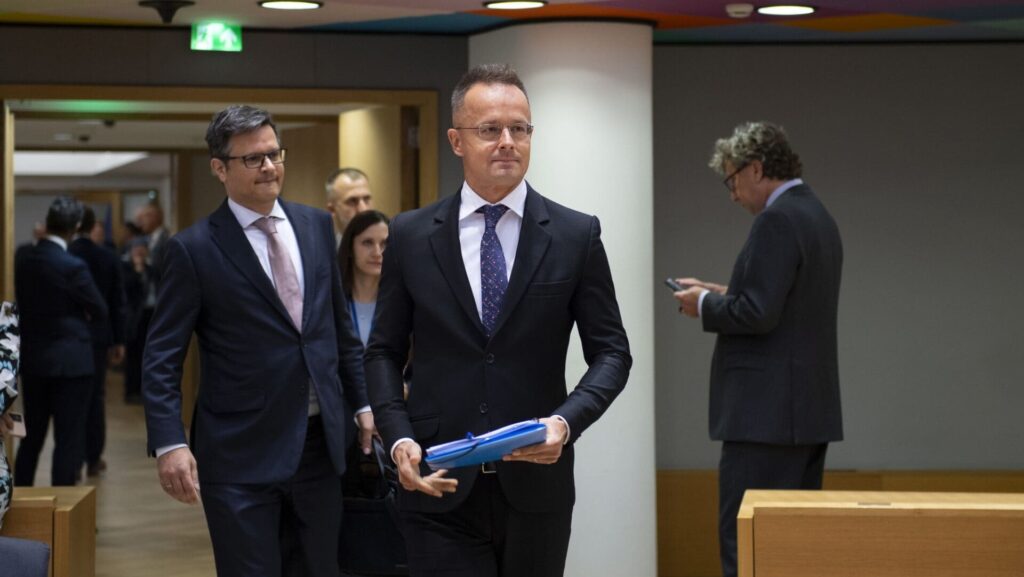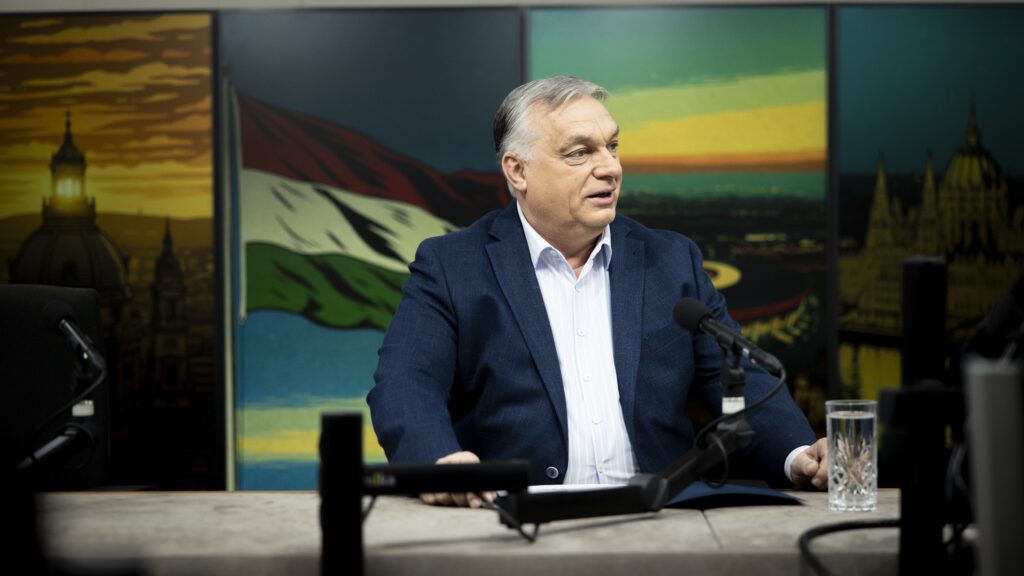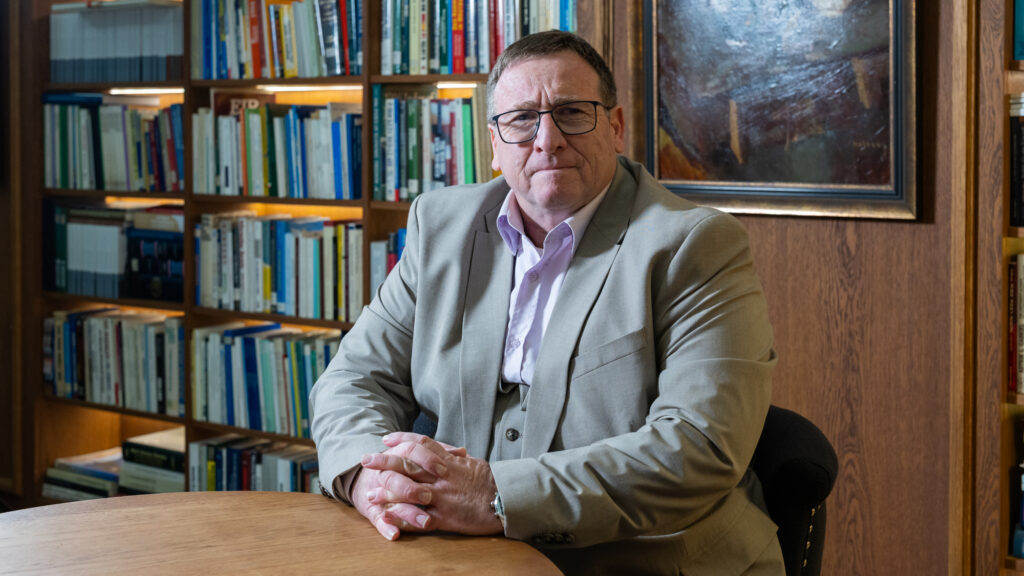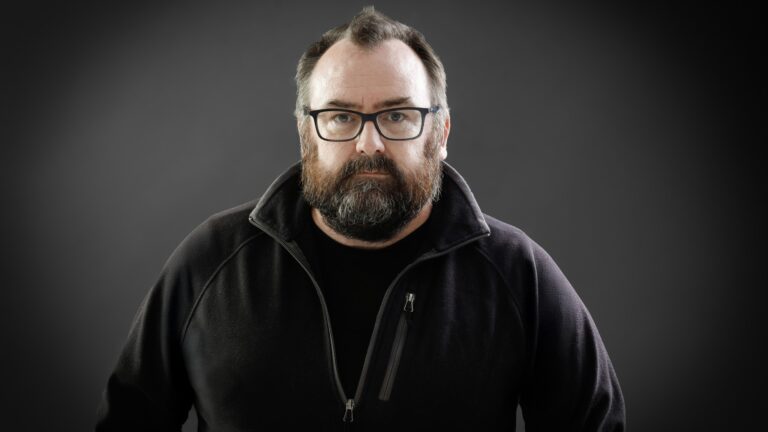Justin Logan is the Director of Defence and Foreign Policy Studies at the Cato Institute, where he specializes in US grand strategy, international relations theory, and American foreign policy. Mr Logan was one of the distinguished speakers at the 5th Geopolitical Summit, co-organized by the Danube Institute and the Heritage Foundation. On the margins of the conference, he sat down with Hungarian Conservative for an interview on a ‘post-American’ Europe, NATO burden-sharing between the US and European member states, and the war in Ukraine.
***
My first question concerns one of your analyses published almost exactly one year ago, ‘A Post-American Europe,’ where you argued that NATO should be Europeanized and that Europe should assume greater responsibility for its own security. Now, nine months into President Trump’s second term, how do you assess the current state of this ‘post-American Europe’?
I think the Trump administration made some early moves that were good, at least in terms of speeches. If you look at Secretary Hegseth’s visit and the Ukraine Defence Contact Group being handed off to the Brits, for example. The speech that Hegseth gave in February, in which he harkened back to Dwight Eisenhower’s lament that the Europeans were possibly going to make a sucker out of Uncle Sam. And Secretary Hegseth said, Donald Trump will not allow Uncle Sam to turn into Uncle Sucker. So that, I think, was a shot across the bow, if you will, to say the United States is serious about burden-shifting.
The Vance speech in Munich, which really presciently talked about some divergences of values between the United States and at least certain parts of Europe on issues like free speech, were, I think, strong indications that the United States was going to follow through with something that had been threatened for decades—which was that the United States wanted to fundamentally rebalance the lines of effort in the transatlantic relationship.
I worry now that after the Hague Declaration, where European countries pledged to spend 3.5 per cent of GDP on defence and 1.5 per cent of GDP on defence-related infrastructure, that the administration thinks its job is done—that this is now sort of money in the bank, if you will. But if you look at the history of European pledges to spend more on defence, they don’t hold up very well. What holds up better is Europeans spending more on defence when they feel more threatened. And so I think a commitment by Germany, for example, to spend in 2035, 3.5 per cent of GDP on defence may not be worth the paper it’s written on. So it very much remains to be seen whether the early promise of the administration will bear out over the next two or three years.
Where do you see Hungary’s role or position in this kind of post-American Europe?
I mean, I think Hungary is reflective of the fact that there is not consensus on everything inside Europe, right? To be provocative maybe: the European Union is, at the end of the day, a state-building project. They’re trying to absorb a lot of the decision-making processes that historically have resided in national capitals. And so I think that any organization of 20-something countries is not going to agree on terribly much. This is just the natural course of international politics.
At the same time, I think that indication of independence—of divergence from the consensus, divergence from the institution of the European Union—shows that we still live in a world of nation-states, right? There’s been a lot of talk in the last couple of decades about how ideological movements or supranational organizations have overtaken the functions of the state. So I think it’s a reminder really that we still remain in a world of nation-states.
Turning to the war in Ukraine: Kyiv is seeking reasonable security guarantees from the West, particularly from the United States. From your articles and analyses, I understand your argument is that Washington should not provide such guarantees. In this context, Hungarian Prime Minister Viktor Orbán recently proposed a European Union–Russia security deal that would cover Ukraine but also broader economic and security issues—potentially including security guarantees for Ukraine. What is your view on this idea?
Right. In the United States, it’s been quite striking how quickly the debate has moved over the past several weeks. The sort of liberal internationalist foreign policy establishment was dead set for a long time on either NATO membership for Ukraine, Article 5–like US security guarantees for Kyiv. And we saw the evolution where the Europeans—by which I mean the French and the Brits primarily—were making unrealistic promises to stick four or five brigades in western Ukraine. The reason they did that was to try to entrap the United States into providing what they called a backstop for such forces. So those forces would be Western troops stationed on Ukrainian territory, but they would be tied to a so-called tripwire, if you like, that would pull in the Americans were Ukraine ever to be attacked. Those troops would likely come under attack, and then that would bring in the Americans.
I think the Trump administration made clear: you have to show your work on what this force is that we’re backstopping. What are we talking about here? And that proposal crumbled fairly quickly. So I think that realistically, given conditions on the battlefield, the denouement of this conflict is going to involve broader discussions about European security. Now these are tricky issues, right? The opening Russian demands are quite expansive—to roll back NATO’s borders to pre-1997. I think that’s not likely to happen. But to the extent that the discussion is broadening beyond Ukraine itself to include at least regional security, if not even broader than that, I think that is likely to bring us closer to an end to the conflict.
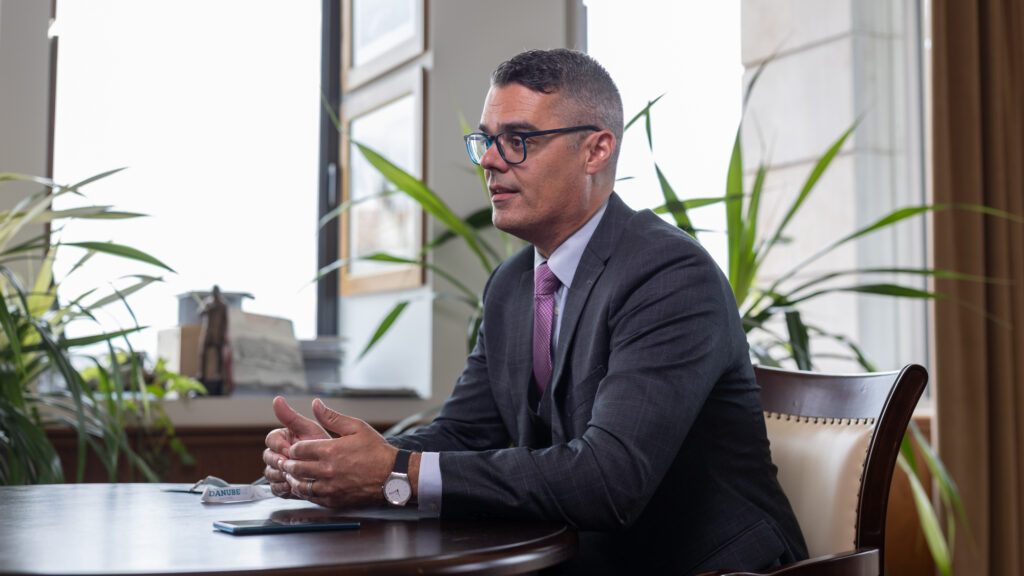
What would that dialogue look like, and which regional powers would be involved?
So it’s a very thorny problem, as you indicate. But I do think that it is going to have to get beyond Russia, France, Germany, the UK—again, to include regional powers, potentially Türkiye, but also other countries that have an investment at stake in the equilibrium that will be produced, hopefully, by an end to the conflict. And I think that the crucial point that we as American analysts need to drive home is that this is an indication of a new and fundamentally different European order that is not going to be as heavily dominated by the United States as was the one that existed for the previous 80 years.
So that’s, I know, in many cases an unhappy message for people whose grandparents grew up under this sort of US-dominated European security order. And I think that if you look at NATO Europe, it has, depending on how one counts, five to ten times Russia’s GDP. It has about five times Russia’s population. So the idea that Europe is this dwarf that could be overrun by Russia—that Russia was threatening to dominate this group of states—strikes me as fanciful.
There’s a sense in which many of the European countries, and I would mention Germany here specifically, are in a condition of what I would call—this makes sense in English—learned helplessness. And the Americans cultivated this sense of helplessness. So the Germans sort of learned how to be helpless. I’ve been joking with my American colleagues that my grandfathers would both be spinning in their graves if they heard me say the world in Europe needs more Germany—because they saw a different movie involving Germany, and it was very unhappy. Two movies actually—there was a sequel.
So this needs to be reconciled with the idea that European security is something NATO Europe can play a huge role in if forced to do so. And I think that the role of the Trump administration should be to force it to do so.
There also seems to be a contradiction here. On the one hand, many European NATO members call for strategic autonomy and a stronger European defence. On the other, they still want US troops to remain on European soil. How do you see this tension?
Well, to be clear, if I were a German, I would want the American troops to stay too. The problem for the United States is that US foreign policy is what I call insolvent, which is to say our aspirations in the world, our goals with our foreign policy, are under-resourced. Now, we spend a trillion dollars a year on defence. So that tells you about how big our goals are if a trillion dollars a year isn’t enough to resource them. But the United States has a national debt of 36 trillion dollars. It’s more than our GDP. We’re running a two trillion a year budget deficit. So we’re adding another two trillion each year to that. And both political parties agree that the largest components of the federal budget, Social Security and Medicare, are off the table. They cannot be touched. So with that, the next item is the national debt, which is very difficult for policy to deal with in any meaningful way. And after that comes the defence budget. So you have a strategy that is already insolvent and growing political pressure, I believe, to cut the defence budget.
So the reason—and the Europeans, President Macron of France, for example, said: ‘Well, we could conceivably take over the conventional deterrence mission, but it would take ten years or so.’ That process needs to start now if it needs to be sequenced in such a way and move fairly fast, because the risk is that if none of these economic problems inside the United States is solved, and it’s not looking great, then it could happen very abruptly. The United States could find itself in a huge economic crisis, growing pressure on the dollar, and just decide in a fit of pique almost to abruptly terminate all of its presence in Europe. And I think there’s a sort of pulling and hauling in the sense that the French and the Germans particularly are trying to slow things down, whereas I think they should really be focused on the potential that things could go very fast.
Turning back to Ukraine—would you say Donald Trump’s peace efforts have failed?
There is not peace in Ukraine, so in that sense, yes, they have not produced a settlement of the conflict. My view is that the very unpleasant reality is that Russia is gradually, brutally winning on the battlefield. Now I don’t believe that we’re likely to end up in a scenario where there’s no sovereign Ukrainian state at the end of the conflict. But the problem is that if Russia perceives that correctly, and I believe that Putin does, the incentive to stop is diminished.
At the same time, there’s been a lot of debate in Washington about more sanctions on Russia. And I think—to talk again about having seen movies before—we’ve put 12 or so rounds of sanctions on Russia. And it’s always, you know, it’s like a drug addict: the next hit will be the last one. And there’s a sense that one more round of sanctions will bring them to their knees. And I think that’s a fanciful idea.
‘The battlefield is tipped against the Ukrainians’
So we really don’t have a lot of levers in terms of economic pressure. And if you look at, well, what if we sent another 60 billion dollars in weapons to Ukraine? Wouldn’t that tip the balance? The problem is that US inventories have been drawn down so dramatically by the conflict in Ukraine, the conflict between Israel and Gaza, and Iran, for example, that if you look at air defences—things that are in very short supply—there aren’t enough to go around. It was recently reported that in order to fulfill existing US defence plans globally, we have about 25 per cent of the requisite inventory of air defence capabilities. That’s not good.
So it’s less a question of who’s paying for weapons and more a question of: where are the weapons? Do the weapons exist? That’s a long-winded way of saying I think that unfortunately the battlefield is tipped against the Ukrainians. There’s been a huge impact on Ukrainian demographics. There are millions of Ukrainians in Europe, not all of whom, to put it mildly, are likely to come back to Ukraine. So I think it is a very unhappy equilibrium in which to find ourselves because we have very few policy levers that look likely to work.
The Russians have not moved dramatically in terms of their opening demands for diplomacy. And Ukraine has been hugely impacted by this conflict. I mean, we’re talking about a trillion dollars in reconstruction and we haven’t even begun to talk about who’s going to pay for that. It’s a very dire and desperate moment. I hope I’m wrong about that, but it’s going to be a tough diplomatic problem to solve.
Read more of our interviews:


